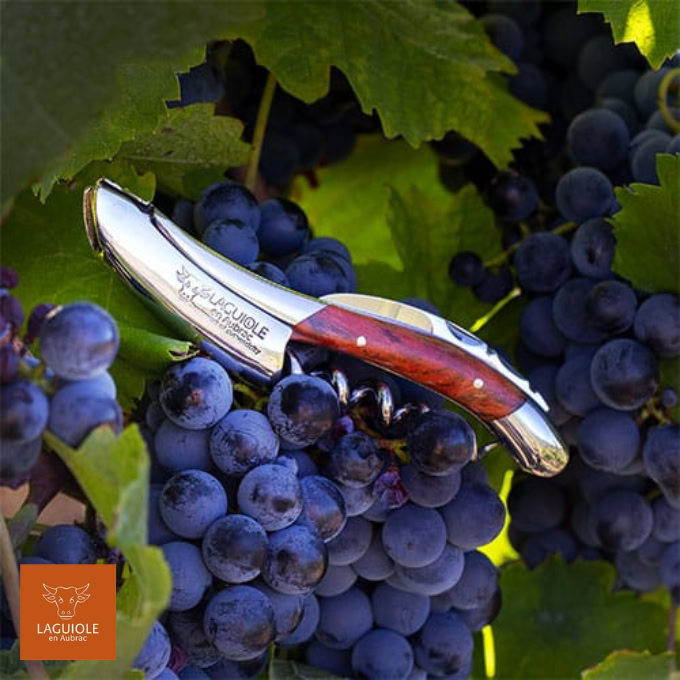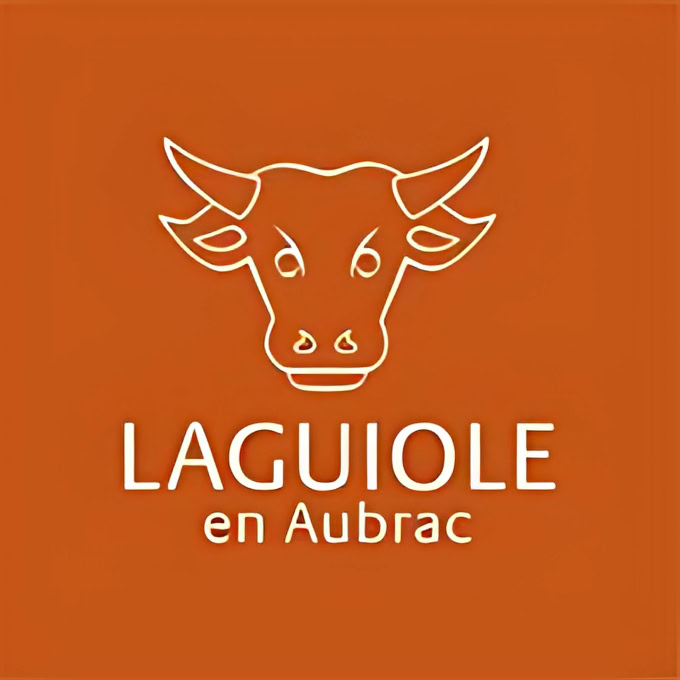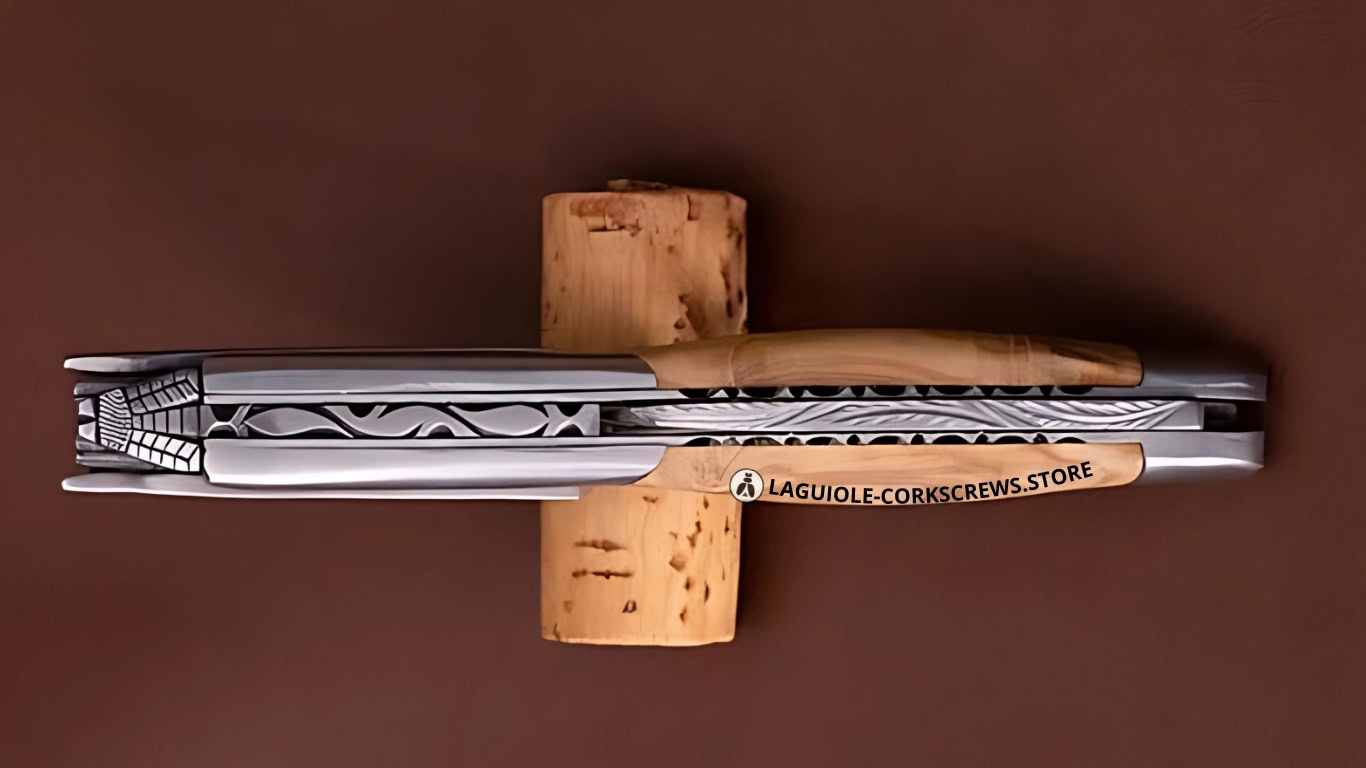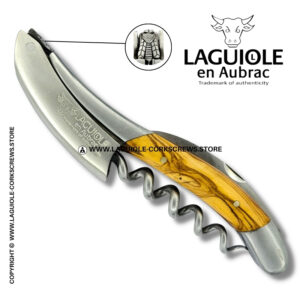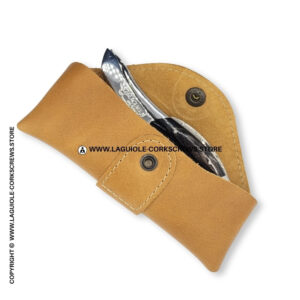The Laguiole Name Is Not a Brand
Many people believe that “Laguiole” is a protected brand name. In reality, it is a geographical reference to a village in southern France — not a registered trademark. This means that any manufacturer, anywhere in the world, can legally use the name “Laguiole” without having any link to the region, its artisans, or its traditions.
This legal loophole has created a global flood of so-called Laguiole corkscrews that are mass-produced, often in Asia, with no connection to the heritage of French cutlery. While some are simply low-cost alternatives, others deliberately imitate the appearance of authentic Laguiole en Aubrac corkscrews, creating confusion for consumers and damage to real artisans.
The Confusion in Tourist Markets
One of the most common places people unknowingly purchase fake Laguiole corkscrews is in tourist gift shops — especially in Paris. For decades, souvenir stores have displayed cheap “Laguiole” corkscrews next to postcards and magnets, marketing them as authentic French products. These tools often have no signature, no forged worm, and no connection to Aubrac. This confusion isn’t accidental. It plays on the romantic image of French craftsmanship, while delivering a mass-produced object that fails in both form and function. Unfortunately, many first-time visitors return home with what they believe is a piece of French heritage, only to discover later that it’s a low-end imitation.
Why People Get Misled
The biggest factor behind counterfeit purchases is lack of information. Most buyers simply don’t know that Laguiole isn’t a trademark. The word “Laguiole” sounds prestigious and French, and when attached to a wine tool, it gives the illusion of heritage. But without artisan credentials, signature, and traceable French production, that illusion quickly fades. This glossary and comparison help cut through the marketing noise.
What Makes a Real Laguiole en Aubrac Corkscrew
A true Laguiole en Aubrac sommelier corkscrew is built with precision and pride. The difference is in the details:
- Made entirely in France — from forging the worm to polishing the bolsters.
- Single artisan assembly — one person signs off every detail.
- Natural handle materials — such as pistachio wood, mammoth ivory, or buffalo horn.
- Forged 5-turn worm — ensures smooth penetration without breaking the cork.
- Balanced weight and feel — elegant in hand, silent in operation.
- Optional engraving — available on spine or bolster to personalize your gift.
→ See the difference: Browse our collection of authentic Laguiole corkscrews
Why Wine Lovers Care About Authenticity
For wine enthusiasts, a corkscrew isn’t just a tool — it’s part of a ritual. The tactile feel, the balance, the way the worm enters the cork cleanly without friction: these sensations matter. A Laguiole en Aubrac corkscrew enhances that moment. It adds dignity to a bottle opening. Counterfeits can break corks, require awkward force, or feel flimsy. A true sommelier corkscrew is meant to elevate, not interrupt, the experience of wine.
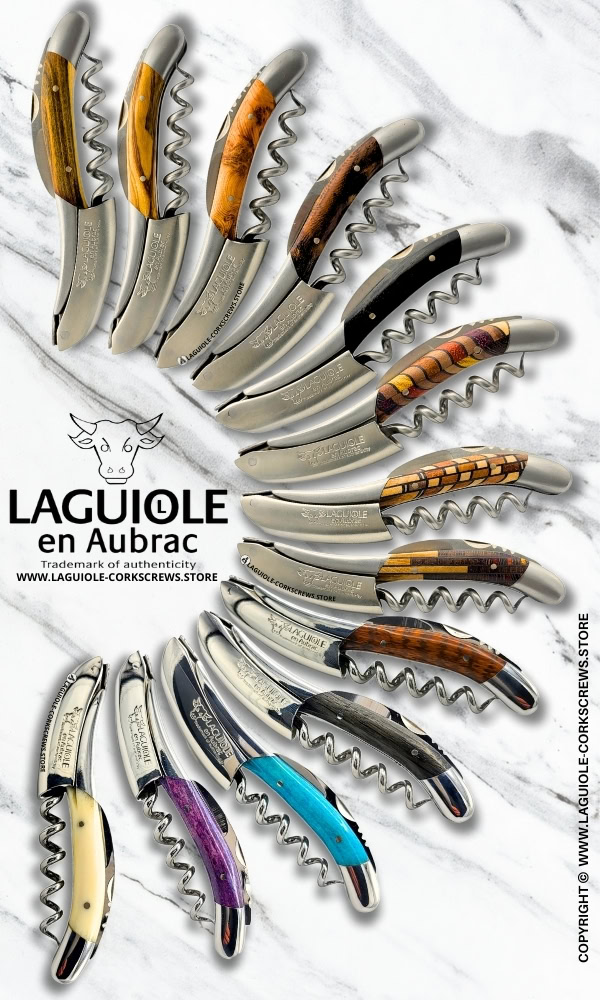
How to Spot a Fake Laguiole Corkscrew
Fakes vary in quality, but they usually share one thing: a lack of transparency. Here are the key signs that should raise red flags:
- No mention of origin: If the product page doesn’t clearly say “Made in France,” it probably isn’t.
- Vague or generic branding: Terms like “Laguiole-style” or “inspired by Laguiole” often hide cheap imitations.
- Plastic or resin handles: Authentic models use noble materials like olivewood, juniper, or horn.
- No artisan signature: Every Laguiole en Aubrac corkscrew is signed by the craftsperson who made it.
- Overly low prices: A handcrafted tool takes hours to produce. Prices that seem too low usually indicate industrial origins.
- Double-lever mechanism: Laguiole en Aubrac corkscrews feature a single-pivot lever. Double-hinge designs are used in mass-market wine keys.
Comparing Real vs Fake Laguiole Corkscrews
| Feature | Authentic Laguiole en Aubrac | Fake or Imitation |
|---|---|---|
| Place of manufacture | Made in France (Aubrac region) | Often made in China, no traceability |
| Assembly | By a single artisan, from A to Z | Factory-assembled in stages |
| Materials | Natural wood, horn, ivory, stainless steel | Plastic, aluminum, synthetic blends |
| Mechanism | Single-pivot lever, forged worm | Double-hinge, machined screw |
| Signature & Certificate | Yes, engraved + certificate of origin | No artisan name, generic packaging |
Where to Buy a Genuine Laguiole Corkscrew
To avoid mistakes, purchase only from verified sources. Here’s what to look for:
- Clear mention of the manufacturer: If it doesn’t say “Laguiole en Aubrac,” it isn’t.
- Detailed photos and descriptions: Transparent pages show the real item, not stock images.
- Availability of engraving: Only authentic models offer in-house personalization.
- Certificate of authenticity: Delivered with every real Laguiole en Aubrac corkscrew.
All models on laguiole-corkscrews.store are sourced directly from Laguiole en Aubrac, with full traceability and artisan signature.
Conclusion: Choose Clarity Over Confusion
Not every Laguiole corkscrew is authentic. But every authentic Laguiole en Aubrac corkscrew carries with it a commitment: to quality, to heritage, and to the people who shaped it. A fake may open a bottle — but only the real thing opens a story.
→ Want to be sure? Read our guide to authenticity.
